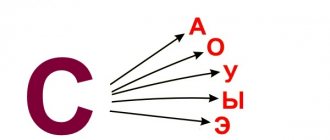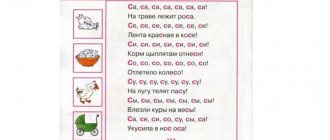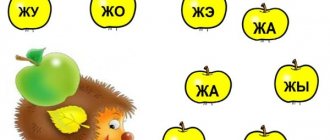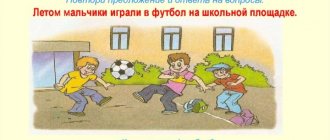The history of "gekanya"
Without a doubt, the southern Russian fricative “g” is an acquired sound. This becomes obvious thanks to the achievements of such a scientific discipline as comparative historical linguistics.
The closest linguistic relatives of all Slavs (figuratively speaking, cousins) are representatives of the Baltic language family. Having once been very widespread, in historical times this community has shrunk to two peoples - Lithuanian and Latvian. In their languages, just like, for example, in the language of their more distant relatives - the Germans, there is no fricative “r”. This means that the sound entered the Slavic languages after their final separation with the Balts.
In addition, it is noteworthy that “gekanye” did not manage to spread to all dialects of the Slavs, but is characteristic of isolated groups: Russians from the south, Ukrainians, Czechs, but is never used by northerners.
This can be partly attributed to the fact that the center almost always unwittingly imposes its speech norm on the periphery. And, in fact, the language of the capital is equal to the literary norm. Approximately in this way, the Moscow form “akanya”, which appeared by philological standards almost yesterday - in the late Middle Ages, managed to displace the traditional “okanya” from the language of the Eastern Slavs. In general, the example of “okanya” is interesting because it allows us to understand which regions in the old days were on the periphery of the Moscow world and where the cultural role of the center weakened. The ancient “okaya” pronunciation has been preserved in the bearish corners of the Russian Kingdom, disappears in the southern and central regions of the country, but still reigns supreme in the languages of the Western Slavs.
Perhaps, if Rus' had been united not by Moscow, but, for example, by Bryansk, then we would have considered “gekaning” to be the norm, and would firmly pronounce this sound only somewhere in the distant villages of the Arkhangelsk region.
However, such an explanation is unsatisfactory in relation to the appearance of “gekanya”, since this phenomenon is common among peoples who have never been part of one power, therefore there could be no cultural influence of any one center. This indicates the extreme antiquity of the southern Russian fricative “g”. And the answer to the question of its origin must be sought in disciplines related to archeology.
To do this, we need to compare the following data: outline the circle of ancient cultures with which the early Slavs lived next door, and, by tracking the development of their languages, determine which of them could have introduced this sound into Russian speech.
In the textbook work of the Soviet historian V.V. Sedov’s “The Origin and Early History of the Slavs”, it was suggested that “gekanye” could have originated in the northern Black Sea region in the first centuries of our era among the bearers of the so-called Chernyakhov archaeological culture.
Chernyakhov archaeological culture
The Chernyakhov archaeological culture (approximately 1st – 4th centuries AD) should be considered one of the most ancient authentically Slavic ones. The realities of life in those distant times were such that representatives of different tribes and peoples could coexist for a long time in stripes: therefore, not far from the Slavic graves you can find Scythian settlements, Gothic mounds and traces of the life of other ancient tribes.
This ethnic polyphony died out in the 4th century AD due to the devastating invasion of the Huns. The peoples sheltered by the hospitable Black Sea coast were forced to scatter in a hurry in all directions. The Slavs of the Chernyakhovsk Black Sea culture suffered a strong blow, but managed to survive, subsequently regularly uniting and contacting other ancient groups of their relatives (in particular, the Przeworsk Slavs).
Among other things, the descendants of Iranian nomads, the Scythians, were forced to leave their homes off the shores of the warm sea. They wandered around the world for a long time in search of a new homeland and eventually found a new home in the Caucasus Mountains. Having settled there, they eventually turned into the people who are known to us today as Ossetians. In our time, Ossetians are the last direct descendants of the formidable masters of the ancient steppes - the Scythians and Sarmatians. And in their language, which is a natural development of the speech of the ancient Iranian pastoralists, there are many characteristic fricative sounds.
Based on the presence of the fricative “g” among modern Ossetians, the reliable residence of their ancestors and Slavs within the same region, it can be argued that the South Russian fricative “g” is the result of the oldest Slavic-Iranian contact that occurred at the dawn of our era.
Poem about the letter G for preschoolers
- Ha-ga-ha! - the goose cackles. - I'm proud of my family! I keep looking at the goslings and the goose, I can’t get enough of it!
N. Koyotarev
***
Grom forgot to put on his galoshes. He clapped his hands loudly, hooted loudly, thundered, and scared the jackdaw in the field. From the meadow he drove the Geese away -
Run away from the Guests! Only our shaggy puppy didn’t hide his head in a hole - he barked loudly at the thunder: Woof! Go away! Let's go for a walk!
O. Tsvetikova
***
The letter G as a corner - The lesson could not be simpler. Here are the words in G for you: Globe, City, Head.
S. Ivanov
***
The letter G suddenly disappeared. Turn around, you will find it in the word “goose”. With the letter G, you won’t get lost. Gas, newspaper and horns, Dove, jackdaw and leg, A lot of words starting with the letter G, Just find out where?
A. Teslenko
***
One guest knocked on the roof, another guest knocked on the window, but when I went out into the yard, I did not meet any guests. A sparse rain fell on the roof, it was empty and dark; An old elm tree tapped my window with an autumn branch.
D. Kondratiev
***
Letter G - hippopotamus Divides the Pear in half. For yourself and the baby Hippopotamus.
K. Green
***
From the letter G - Mushrooms and Eyes, And the magical Dwarf in a fairy tale. - Come to us, Overweight Goose! - MiGom! I'll just run away!
A. Manfish
***
LET'S PLAY A GAME?! Quest: MULTIMINIC BOOK
1. Guess the Rebus from the picture in this block.
2. Enter the GUESSED word in the Coupon Code via the LINK and receive the book for free.
3. Find the rest of the Rebuses in other articles on our site to collect the ENTIRE COLLECTION of Mini-Books for FREE!
G walks around the City, the hum of cars does not bother her. The letter feeds the pigeons Buckwheat A handful in her hand.
O. Talanova
***
Up the line, then bend it - we'll call it the letter G. A table on one leg will remind us of the letter G.
S. Rhine
*** Goose bought himself an accordion, but it had a few holes. The harmonica sang well and hissed like a goose.
G. Vieru
***
Here are geese with a brood of goslings, making noise and hissing like snakes. They threaten the truck, craning their necks. But the truck is not afraid of a flock of loud-mouthed geese. He threatens the gander with a horn, clearing the road.
S. Marshak.









